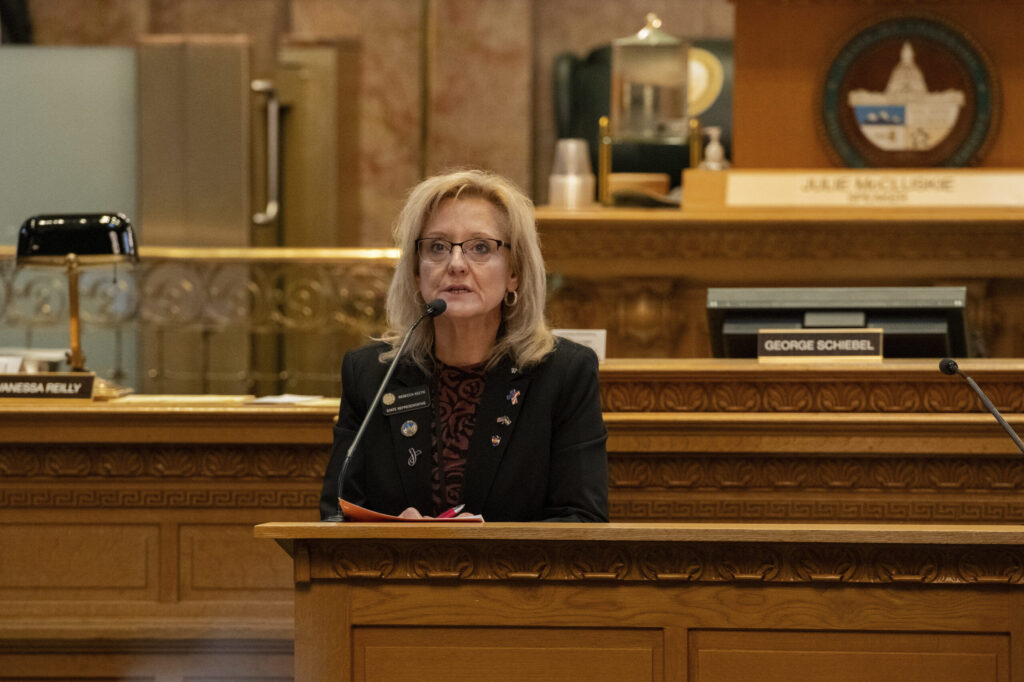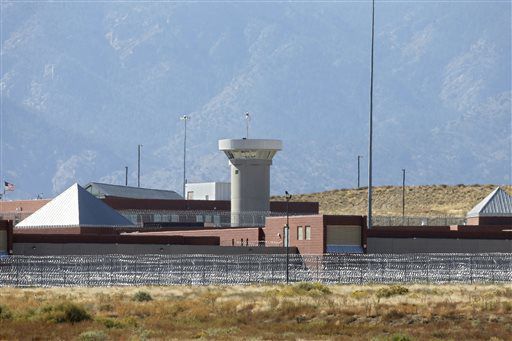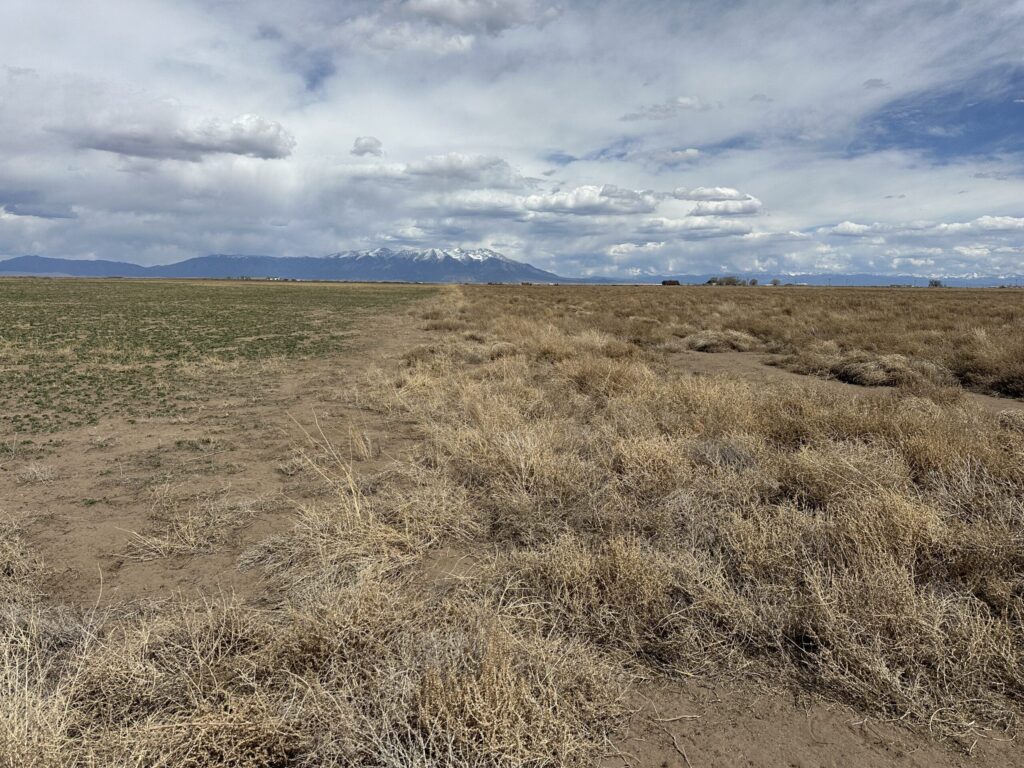Colorado governor signals willingness to sign bill inoculating immigrants from Trump policies | ANALYSIS
Gov. Jared Polis said that while he had “major problems” with an earlier proposal that sought to inoculate immigrants from federal policies, the bill now includes “workable language,” thereby signaling his intent to sign it.
The governor reiterated he is still reviewing the proposal, which underwent several changes before its final passage during the 2025 legislative session.
At its core, Senate Bill 276 reemphasized existing state law that precludes local law enforcers from detaining an individual based on an “immigration detainer.” An immigration “detainer” is a notice issued to federal, state and local law enforcement agencies informing the latter that agents intend to assume custody of an individual no longer subject to the former’s detention.
Republicans have sought to repeal this and other laws, which they described as “sanctuary policies.” One Colorado county has sued the state over the policies, arguing they preempt federal immigration laws and regulations. A district court ruled against the county. Critics have also blamed the “sanctuary policies” for drawing into Metro Denver some 40,000 people who illegally crossed America’s southern border. The mayor of Denver said he views the issue through a moral lens — that is, he needs to act as families arrive in his city in the middle of winter.
In its final form, SB 276 clarifies that “detain” means the denial or delay of release from law enforcement custody “for immigration enforcement purposes.” Additionally, the bill reiterates that detaining a person who has successfully posted a bond based on a detainer request is a “new warrantless arrest.”
The bill also bars local enforcement from “commanding” or “requesting” a private citizen to assist in arresting or detaining an individual based on an immigration detainer.
Insofar as jails, the bill prohibits a custodian from delaying a defendant’s release for immigration enforcement. However, it explicitly references an existing law that says nothing in the section precludes a law enforcement officer “from cooperating or assisting federal immigration enforcement authorities in the execution of a warrant issued by a federal judge or magistrate or honoring any writ issued by any state or federal judge concerning the transfer of a prisoner to or from federal custody.”
The reference appears to further define and limit any cooperation between local and federal immigration agents on custody matters to only those instances in which a judge has weighed in.
Other provisions of SB 276 includes the following:
-
A person is not subject to a civil arrest while undergoing treatment in a facility
-
A student without legal status is eligible for a college funding program and state financial assistance
-
A non-citizen can ask for a guilty plea to be vacated for Class 3 and traffic misdemeanors, as well as for petty offenses
-
State law already prohibits an employee of a state agency from disclosing any identifying information of a person to assist with immigration enforcement. The bill extends that to workers of all political subdivisions, such as “home rule” counties and municipalities. The bill makes an exemption for criminal investigations.
-
• A childcare center, public school, or higher educational institute is barred from collecting a person’s immigration status, save when required by federal or state law “as necessary to perform duties, or to verify a person’s eligibility for a government-funded program if verification is a necessary condition of government funding or participation.” These facilities may release the information under an order from a federal judge or magistrate. Each violation could result in a $50,000 fine.
“We wanted to make sure that it met the bottom line of making Colorado safer, making sure we can partner with federal law enforcement,” Polis recently said.
The governor added, “We wanted to make sure the language around how prisoners could be turned over to federal authorities worked.”
“We didn’t want any repeats of what happened in the Denver parking lot, where somebody fled and an officer got injured,” he said.
The governor was referring to an incident several weeks ago, when an alleged gang member of the Venezuelan gang Tren de Aragua was released onto the streets outside the county jail in Denver. Upon seeing the federal authorities, the person ran, leaving federal immigration agents to chase him.
During a congressional hearing on March 5, U.S. Rep. Jim Jordan, who questioned Denver Mayor Mike Johnston, said one of the ICE officers got assaulted in that parking lot.
Polis said they “workshopped” the matter with Colorado sheriffs.
“I think there’s workable language about how we can better cooperate with federal investigative authorities around immigration cases,” he said.
Several Colorado sheriffs have long supported repealing the state’s “sanctuary” policies.
Douglas County Sheriff Darren Weekly said he remains concerned about the consequences of this bill and the safety of all law enforcement personnel both local and federal who are tasked with addressing immigration-related issues.
Weekly said he serves on the County Sheriffs of Colorado legislative committee but had no input “whatsoever” in drafting SB 276.
“I am still in the process of assessing the legislation with our legal counsel and how my agency can lawfully continue to work with ICE to protect Douglas County,” he said.
Denver Sheriff Elias Diggins has expressed hope that SB 276 could work for all Colorado sheriffs. A spokesperson for Diggins’ office said he is a member of the County Sheriffs of Colorado and the group did discuss this topic with the governor’s office.
Polis signaled his intent to sign the law amid a lawsuit from the U.S. Department of Justice targeting Colorado and the City and County of Denver, alleging their policies are interfering with the job of immigration officers in a case that could have ramifications for enforcement nationwide.
The federal lawsuit claimed both the state and Denver have enacted “sanctuary laws” in violation of the U.S. Constitution, the latest in a series of actions by President Donald Trump cracking down on so-called “sanctuary” jurisdictions.
Along with Johnston, the lawsuit named Polis, Attorney General Phil Weiser, the state legislature, the Denver City Council, the Denver Sheriff’s Department and Denver Sheriff Elias Diggins.
Similar lawsuits have been filed against Chicago and Rochester, New York.
Similar lawsuits have been filed against Chicago and Rochester, New York.
Reporters Marissa Ventrelli, Deborah Grigsby and Nico Brambila contributed to this article.











